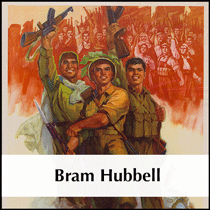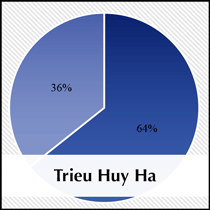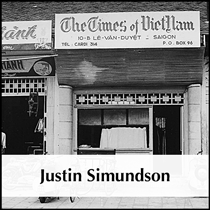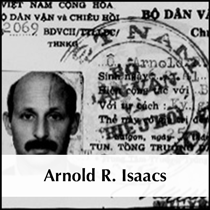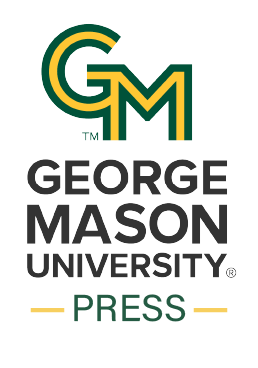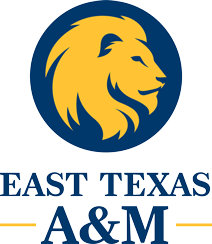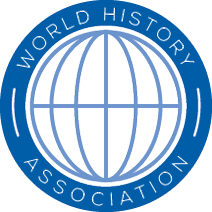Announcing Vol. 20 No. 2
Announcing the publication of the Summer 2023 issue (Vol. 20 No. 2) of World History Connected, now published by George Mason University Press (https://journals.gmu.edu/index.php/whc), where back issues from its former publisher will soon appear. The journal likes to introduce new features at regular intervals; here it is a special issue that features not the regular Forum, a topically related set of articles, but two, Guest Edited by Vera Parham and Alan Singer respectively.
In her introduction to her Forum, “The American West in World History,” Vera Parham takes note of the great varieties of stories that can be found in the region arising from the its Indigenous history, its subsequent waves of exploration, immigration, colonization, the constant transformation of its landscape, and its connections to the rest of the Americas, Africa, Asia, and Europe. Among the latter, was the refuge taken in my small part of Southern California by some of the world’s greatest minds fleeing the Holocaust, which had no small impact on both their ideas and the intellectual and cultural level of their environment.
Parham finds that such stories demonstrate the “American West is a micro history that reflects the macro history of our world,” and that, “by placing the American West into the practice of World History, we afford our readers, fellow scholars, and students an easily digestible nugget of history that can build a broader historical lens.” The Forum’s articles certainly offer accessible and valuable examples of world historical processes, all with an intriguing twist. They range from immigration, transportation, and the environment that take us to the Arctic, to the jungles of Panama, to Mesa Verdi, and into the Colorado Desert.
The second Forum is the result of World History Connected’s desire to continue to trace how the current wave of cultural war in the United States is impacting the field of World History and world history education. This effort began with the Winter issue (WHC Vol. 20 No. 1). That issue’s focus was the rising effort to reform State World History Standards often without input of teachers, or by deliberately excluding the reports of educators who had been empaneled to advised their State on such changes. Articles in that Forum offered positive ways of meeting these “reforms” that invariably challenged “evidence- based” and “critical thinking” elements of these standards.
This Forum, as is suggested by its title, “Teaching History in Contentious Times,” takes these matters down to the curriculum and classroom levels. In his introduction, Alan Singer relates the process by which this Forum came to be the published home of an effort to gather teacher education instructors and secondary school instructors of great experience and high standing in their communities to share their concerns about what to them was the politicization of high school education in ways that impinged on an instructor’s and their student’s rights of free speech and the ability of teachers to literally teach well-evidenced and well established historical truth. Teachers remark here that African slavery in America is not a politicized theory, but a reality, which they see being undermined by attempts to use issues such as Critical Race Theory as a means of erasing much of the historical experience of Black Americans.
Book Reviews
John Aberth, The Black Death: A New History of the Great Mortality in Europe, 1347-1500, by Daniel Blumlo; Raja Adal, Beauty in the Age of Empire: Japan, Egypt, and the Global History of Aesthetic Education, by Stephanie Boyle; Penny M. Von Eschen, Paradoxes of Nostalgia: Cold War Triumphalism and Global Disorder Since 1989, by David Neumann; David Stasavage, The Decline and Rise of Democracy: A Global History from Antiquity to Today, by Kim Richardson; Abdelmajid Hannoum, The Invention of the Maghreb: Between Africa and the Middle East, by Luke Sebastian Scalone.
About World History Connected
World History Connected is a grant-supported open-sourced, double-blind peer reviewed affiliate of the World History Association. It serves as a means of creating community among all those devoted to research and teaching world history. Not every article “connects” or bridges these twin objectives, but published reviews have judged this e-journal successful in achieving its dual goal in supporting and disseminating globally both archivally based research and the scholarship of teaching. Over its 20 years of existence, it has been guided by world historians and educators devoted to providing publication opportunities for senior, rising, and scholars just entering the field, offering the latter assistance in reaching the highest standards for accessible writing, referencing, and formatting, whether the article is, or is not, accepted for publication. Its editorial staff includes past presidents of the World History Association and distinguished Advanced Placement and Master Teachers, none of whom are paid for their service.
Those interested in submitting articles to the journal should email the Editor, Marc Jason Gilbert (hallgilbert@earthlink.net) with the subject line, “WHC Submission,” adding their name and short tile of the submission. Prospective authors of articles should refer to the journal’s “Submission Guide and Style Sheet” before submitting their articles for peer review. The Guide can be found on the journal’s website at https://journals.gmu.edu/index.php/whc/submission-guidelines. Like all academic journals, it reserves the right to decline to publish any submission.
World History Connected welcomes expressions of interest from those who might like to serve as Guest-Editors for its Forums. Calls for Papers to contribute to announced Forums, as well as for individual articles, are regularly posted on H-Net, the World History Association’s Newsletter and social media.
Book reviews are welcome via preliminary contact with the journal’s Book Review Editor, Cynthia Ross (Cynthia.Ross@tamuc.edu)
The journal is published 3 times annually (Winter, Summer and Fall), with additional material shared on social media through its social media editors, Angela Lee (mrsleehistory@gmail.com), Suzanne Litrel (suzannemlitrel@gmail.com), and Joe Snyder (jsnyderwvu@gmail.com).


